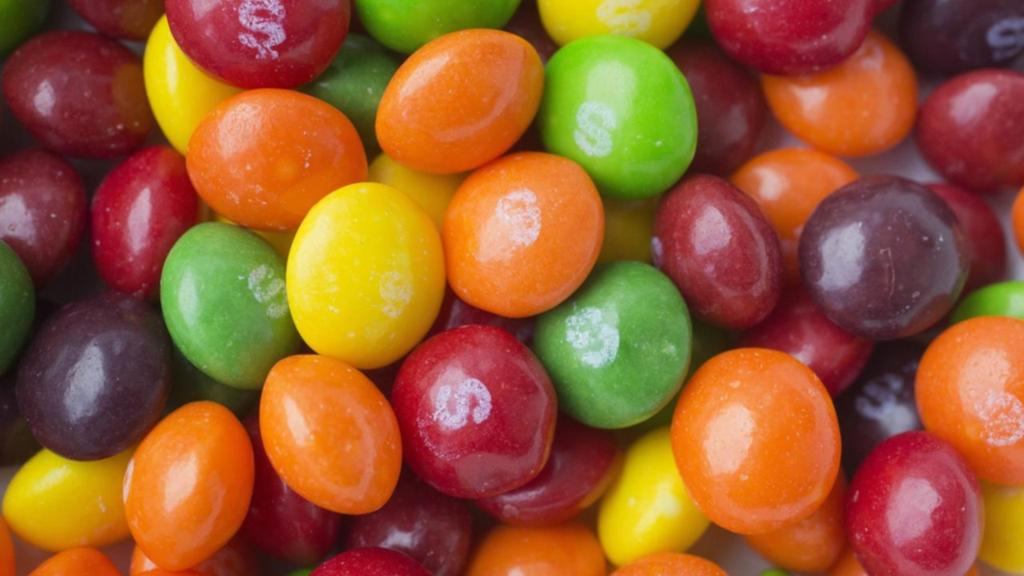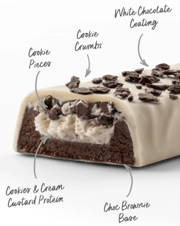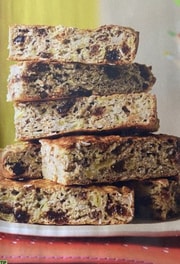Lawsuit claims Skittles are 'unsafe to eat' due to possible presence of 'known toxin'
- Replies 3
Looks like people aren't 'tasting the rainbows' anytime soon, as a new lawsuit claims that a popular rainbow-coloured lolly contains some kind of 'known toxin' that makes it unfit for human consumption.
According to the reports, the additive is capable of causing damage to DNA, the brain, and organs, in addition to lesions in the liver and kidneys.
According to a lawsuit submitted on Thursday in a Federal Court in northern California, Skittles candies—whose slogan is 'taste the rainbow' because of their variety of colours—contain the 'known toxin' titanium dioxide.
A San Leandro resident named Jenile Thames filed a lawsuit against Mars Inc, the manufacturer of Skittles, requesting class-action status and claiming that those who consume Skittles are at 'higher' risk of many health problems they don't even know about.

Skittles are allegedly unsafe to consume because it contains a toxin that can harm DNA. Credit: AP.
According to the civil lawsuit, Mars has long been aware of the alleged dangers of this chemical and publicly announced in February 2016 that it would phase out titanium dioxide.
After France banned titanium dioxide in 2019, court documents say that Mars made a statement saying it would follow suit.
In the complaint filed by Thames, it is believed that six years ago, Mars 'blew smoke' when it made that commitment, hinting that the phase-out was taking place simply because 'consumers today are calling on food manufacturers to use more natural ingredients in their products.'
Thames says that Mars is still selling candy with titanium dioxide in it and is 'not telling consumers what the effects of eating the toxin are.' (Lists of ingredients vary, with some claiming or denying the presence of titanium dioxide.)
The lawsuit alleges that fraud and violations of consumer protection laws in California occurred, and it seeks unspecified damages.
Titanium dioxide, which is typically used in candy and baking, is described by the European Food Safety Authority as 'a pigment commonly used to provide a cloudy effect and white background colour.'
In 2021, the regulatory body issued a statement declaring that 'titanium dioxide can no longer be considered safe as a food additive.'
'A critical element in reaching this conclusion is that we could not exclude genotoxicity concerns after consumption of titanium dioxide particles,' the authority said. 'After oral ingestion, the absorption of titanium dioxide particles is low; however, they can accumulate in the body.'
Here in Australia, the majority of the Skittles packaging states that titanium dioxide is not one of the ingredients. But it never hurts to double-check if you come across one!
However, it is acceptable in the USA to use titanium dioxide in food products under certain conditions.
The Food and Drug Administration's Code of Federal Regulations says that titanium dioxide can be used to colour foods, but there are some rules, such as the amount of titanium dioxide can't be more than 1% of the food's weight.
A spokesperson for Mars, Inc. has already come forward to address the issue.
In a statement given to TODAY, they said, 'While we do not comment on pending litigation, our use of titanium dioxide complies with FDA regulations.'
Watch the video below to learn more about titanium dioxide and determine whether it is really necessary to worry about ingesting small amounts of it:
Credit: 9News.
According to the reports, the additive is capable of causing damage to DNA, the brain, and organs, in addition to lesions in the liver and kidneys.
According to a lawsuit submitted on Thursday in a Federal Court in northern California, Skittles candies—whose slogan is 'taste the rainbow' because of their variety of colours—contain the 'known toxin' titanium dioxide.
A San Leandro resident named Jenile Thames filed a lawsuit against Mars Inc, the manufacturer of Skittles, requesting class-action status and claiming that those who consume Skittles are at 'higher' risk of many health problems they don't even know about.
Skittles are allegedly unsafe to consume because it contains a toxin that can harm DNA. Credit: AP.
According to the civil lawsuit, Mars has long been aware of the alleged dangers of this chemical and publicly announced in February 2016 that it would phase out titanium dioxide.
After France banned titanium dioxide in 2019, court documents say that Mars made a statement saying it would follow suit.
In the complaint filed by Thames, it is believed that six years ago, Mars 'blew smoke' when it made that commitment, hinting that the phase-out was taking place simply because 'consumers today are calling on food manufacturers to use more natural ingredients in their products.'
Thames says that Mars is still selling candy with titanium dioxide in it and is 'not telling consumers what the effects of eating the toxin are.' (Lists of ingredients vary, with some claiming or denying the presence of titanium dioxide.)
The lawsuit alleges that fraud and violations of consumer protection laws in California occurred, and it seeks unspecified damages.
Titanium dioxide, which is typically used in candy and baking, is described by the European Food Safety Authority as 'a pigment commonly used to provide a cloudy effect and white background colour.'
In 2021, the regulatory body issued a statement declaring that 'titanium dioxide can no longer be considered safe as a food additive.'
'A critical element in reaching this conclusion is that we could not exclude genotoxicity concerns after consumption of titanium dioxide particles,' the authority said. 'After oral ingestion, the absorption of titanium dioxide particles is low; however, they can accumulate in the body.'
Here in Australia, the majority of the Skittles packaging states that titanium dioxide is not one of the ingredients. But it never hurts to double-check if you come across one!
However, it is acceptable in the USA to use titanium dioxide in food products under certain conditions.
The Food and Drug Administration's Code of Federal Regulations says that titanium dioxide can be used to colour foods, but there are some rules, such as the amount of titanium dioxide can't be more than 1% of the food's weight.
A spokesperson for Mars, Inc. has already come forward to address the issue.
In a statement given to TODAY, they said, 'While we do not comment on pending litigation, our use of titanium dioxide complies with FDA regulations.'
Watch the video below to learn more about titanium dioxide and determine whether it is really necessary to worry about ingesting small amounts of it:
Credit: 9News.







